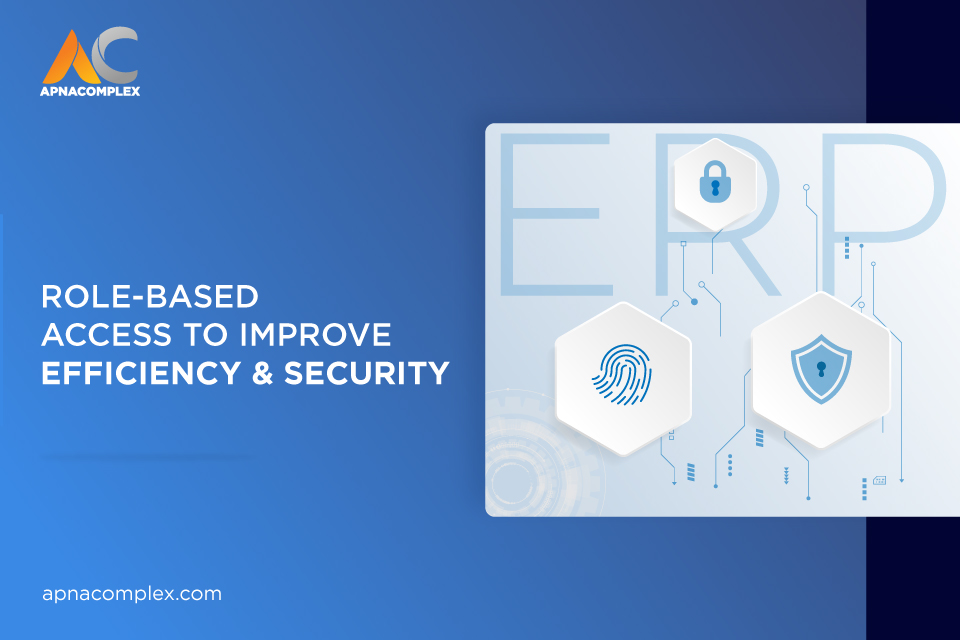What is Role-Based Access & Why it’s Vital for Data Security
Product News admin access, role-based access control, society management, society management softwareEvery gated community is a storehouse of data. This makes data security one of the major concerns for every Management Committee (MC) and Resident Welfare Association (RWA). A key component of data security is limiting access to information. ApnaComplex resolves this challenge by creating role-based access to data.
Role-based access control (RBAC) is also critical for operational efficiency. It creates an approval structure that assigns the right person for the right job. Thus, it reduces the wastage of time and effort. It is considered one of the most effective access control measures. For instance, one study found it to be more effective than Discretionary Access Controls.
What is role-based access control?
Role-based access control allows the MC or society admins to set up access permissions for data and processes. Permissions are based on individual roles and responsibilities. This data parsing is necessary in large organisations where multiple functions are handled at the same time by different people. It ensures that one has access to only the information that they need for performing their tasks while preventing access to the broader data pool or processes.
How to implement role-based access control with ApnaComplex?
The role-based access is part of the ApnaComplex ERP (Enterprise Resource Planning) solution. An authorised person, usually an MC member or the Community Administrator, allocates these pre-assigned roles to staff or members according to their responsibilities. Some of the key roles include:
- Community administrator
- Accounting administrator
- Complaint Category administrator
- Security front office
- User Management administrator
Of these, community administrators have the power to assign these roles. These roles are set during the ERP’s implementation.
Benefits of role-based access
The advantages of role-based access go beyond enhancing security. It improves operational efficiency, making sure that information is also easy to access.
Data security: The prime reason for role-based access control is to ensure data security. It follows the simple rule of limiting access to reduce any chances of data leakage. This is necessary in the case of an ERP like ApnaComplex where multiple people, from the staff to residents, may have access.
Eliminating unauthorized access: Without authorisation, third-party users like vendors cannot gain access to any data.
Streamline approvals: It creates a hierarchy of approvals which removes any confusion over authorisation. For instance, residents know that only the forum administrator has the power to delete any unsavoury comments in a forum. This establishes the proper authority and removes any confusion over whom to approach for approvals or to redress grievances.
Reduce administrative burden: Under the ApnaComplex role-based access you do not have to deal with tasks that do not concern you. The restrictive access to processes ensures that you don’t have to oversee multiple tasks, thus reducing administrative burden. For instance, an Accounting Administrator is not concerned with Security Front Office functions like approving domestic staff.
Create accountability: The other side of power is accountability. With clearly laid approval chains, it is easy to track decisions and pin responsibility. For instance, the burden of checking due security clearances for domestic staff lies with the Security Front Office. Any lapses can be, therefore, easily tracked.
Learn more
- Find out how role-based access works in Move-in/Move-out.
- Restricted access also ensures that the right information is easily available for disaster management.
- Learn how it enhances data security and why it is vital for ApnaComplex ISO/IEC 27001:2013 certification.
- And why it is one of the top 10 reasons to pick ApnaComplex over any other society management app!
If you want to learn more about role-based access control, get in touch with us at support@apnacomplex or call 80886 11229. Our team will help you understand how it can help in protecting your data while improving efficiency.
